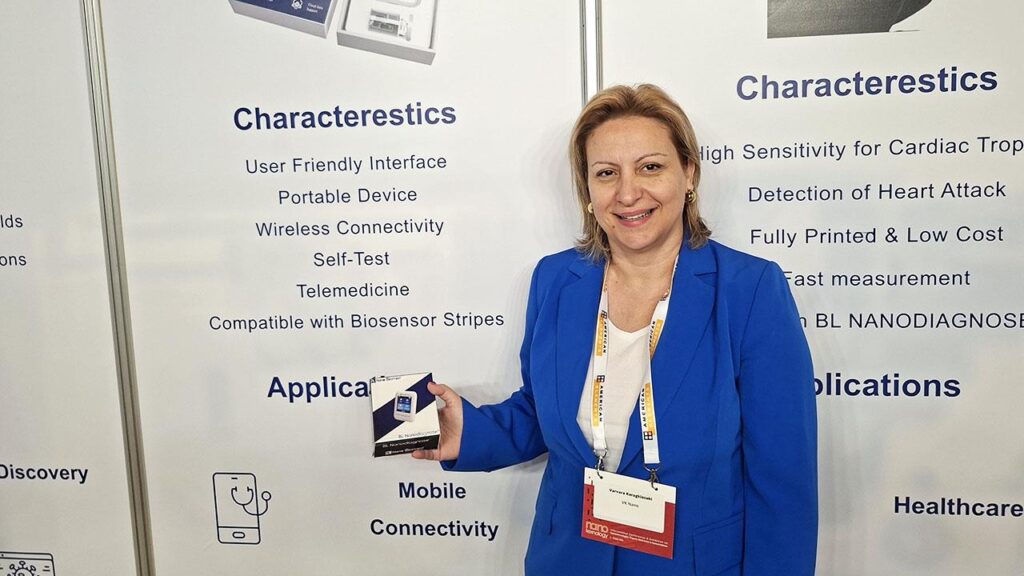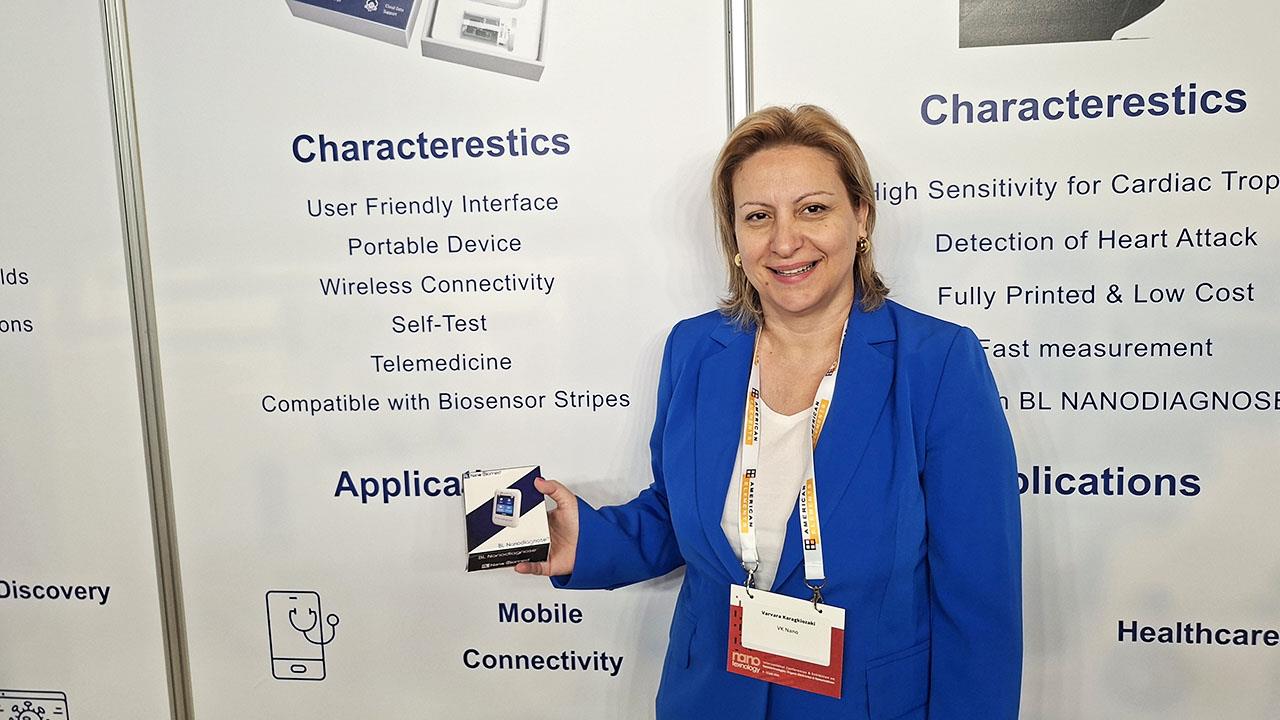In a large clinical trial, the Greek biosensor for heart attack diagnosis.
In a large clinical trial, the Greek biosensor for heart attack diagnosis.

A Greek-developed biosensor for heart attack diagnosis is entering a large-scale clinical trial. Created by the startup BL Nanobiomed in Thessaloniki’s nanotechnology ecosystem, the Nanodiagnose device allows patients to perform a self-test using a drop of blood, delivering results in just two minutes with high accuracy. It works like a glucose meter and can send alerts via telemedicine to healthcare units in case of a heart attack indication.
The device detects troponin, a key biomarker for myocardial infarction, with nanogram-level sensitivity and specificity. According to Dr. Varvara Karagkiozaki, cardiologist and head of the nanomedicine division at the International Nanotechnology Hub Thessaloniki (NHT), this innovation could drastically reduce the time between symptom onset and hospital admission, which is critical for survival and treatment effectiveness.
After promising results in a pilot clinical study, the biosensor is now moving toward a larger comparative clinical trial, essential for FDA and EMA certification. The process is supported by Pfizer’s innovation hub in Thessaloniki and aims to bring the product to market for wide use.
A prototype is currently showcased at the Nanotexnology 2025 event in Thessaloniki.
#HeartAttackDetection #CardiacCare #EarlyDiagnosis #TroponinTest
#Nanotechnology #Nanomedicine #Biosensor #HealthTech
#SmartDiagnostics #Telemedicine #MadeInGreece #Nanotexnology2025 #NHT



